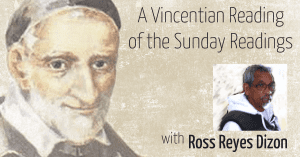 Jesus states he is a prophet with the same destiny as the other prophets rejected by their own people.
Jesus states he is a prophet with the same destiny as the other prophets rejected by their own people.
He explains that he is God’s good and amazing Word to the poor. And right away he is revealed as a prophet.
That is because, notwithstanding their initial expression of approval and admiration, Jesus’ townsfolks end up running him out of town. They cannot bear him because he gives witness to the truth.
Those who cannot accept the reality that God has raised up for them a prophet from among their kinsmen reject Jesus. Those who, expecting little from themselves, consider it impossible for a local citizen to have a prophet’s calling resist him.
They persecute Jesus, those who do not like to face the painful truth that he lays before them, quoting them the saying, “Physician, heal yourself,” and warning them, “Amen, I say to you, no prophet is accepted in his own native place.” And so, the evangelist Luke recounts:
When the people in the synagogue heard this, they were all filled with fury. They rose up, drove him out of the town, and led him to the brow of the hill …, to hurl him down headlong.
Indeed, the prophet who is not bought, who is faithful to the truth, “is a delinquent where lies reign.” The children of lies put a price on his head. Are we not numbered among them?
Does our admiration for Jesus translate into discipleship? Do we not lack the wisdom and grace that fit our age, so that we still remain in darkness of falsehood?
Do we really learn from the mistakes of the past? Or are we like Jesus’ ill-intentioned townsfolks who fiercely oppose him even as they protest perhaps, “If we had lived in the days of our ancestors we would not have joined them in shedding the prophets’ blood.” Do we not condemn Church members with “strange” and “unorthodox” ideas only to rehabilitate them later with the title of cardinal and venerate them as prophets deserving of magnificent monuments?
 Do we learn from St. Vincent de Paul? His experience proves and teaches that we will never emerge from darkness into the light of truth unless we confess ourselves absolutely poor and inadequate before God and embrace those who are like us, without attempting to run away from them.
Do we learn from St. Vincent de Paul? His experience proves and teaches that we will never emerge from darkness into the light of truth unless we confess ourselves absolutely poor and inadequate before God and embrace those who are like us, without attempting to run away from them.
Indeed, those who love their brothers and sisters, as spelled out in 1 Cor 13, 4-7, remain in the light. Rightly does the Eucharist forbid us to let those with nothing to go hungry.
Lord Jesus, give us your Spirit to guide us to all truth.
January 31, 2016
4th Sunday in O.T. (C)
Jer 1, 4-5. 17-19; 1 Cor 12, 12-31 – 13, 13; Lk 4, 21-30
Read in ESPAÑOL








you know even our society have hierarchies!
i some times wonder what vincent would make of us if he were among us now.
i wish i had the nerve,the strength and the willpower to live my life as Jesus taught us